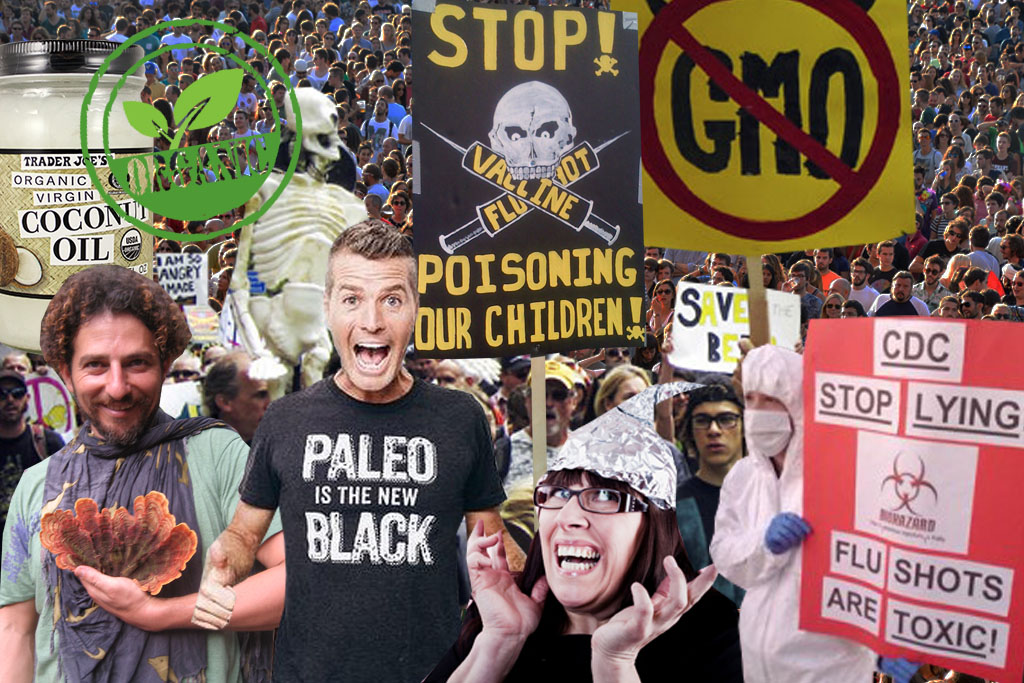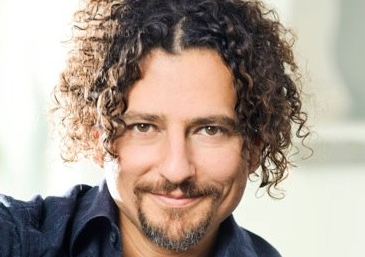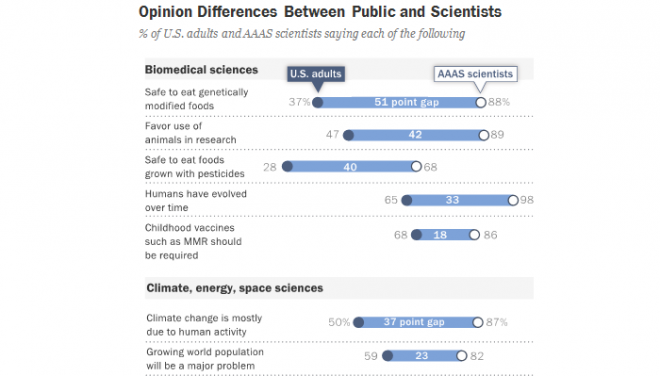Coconut Oil Isn’t Magic, Vaccines Don’t Cause Autism, And Science Denialism Needs To Stop
CC: Pete Evans.

A few years back I had a long-term relationship fall apart. Things had been rocky for a while, but the final nail in the coffin came when my partner purchased a bottle of ‘harmony spray’.
The product, which claims to be designed to “reduce disharmony”, had the opposite effect: the immediate realisation that we were two entirely different people and that I should slowly back away and very carefully move out of the room.
Breaking up with somebody because they thought an aerosol made from flowers and water is capable of reducing “intimidating vibrations” might seem infantile, I’ll admit. But there are few things that bother me more than faux-scientific quackery, and right now, we’re surrounded by it.
–
Let’s Get This Straight: Science Is Very Good
Science has completely remade the world, and in no field has it benefited the human race more than in medicine. It’s eradicated dozens of diseases that used to kill millions. More still are nearly on the way out (thanks, vaccines!)
So why do I keep seeing articles popping up on my newsfeed about how pharmaceutical companies are engaged in a vast conspiracy to deny us a cure for cancer because chemotherapy generates such enormous profits? Why is genetically modified food, which many argue is the key to solving world hunger, the subject of a scare campaign from rich white people in Western countries who ignore the fact that it might also help with that pesky little climate change thing we’re all banging on about?
Why is David ‘Avocado’ Wolfe (yes, he’s given himself that name) — a man telling his 7 million followers that ginger is 10,000 times more effective than chemotherapy when it comes to eliminating cancer cells — regarded by many as a health and nutrition expert?
Also why does he, without a hint of irony, choose to look like this in 2016?

–
Why, Dammit, Why?
The human brain is the most advanced processing computer in the known universe (until SkyNet comes along and murders us all), but in many ways it’s still stuck in the stone age, capable of being duped by even the oldest superstitions.
A study by Andrew Shtulman, a professor at Occidental College, gives some insight into our stubborn belief in even the most thoroughly disproven concepts. Shtulman asked 150 graduates with advanced math and science degrees to assess, as quickly as possible, the truth of a variety of scientific statements, one of which was “the Earth revolves around the sun”.
Surprisingly, graduates took a while longer to confirm they believed in this well-established scientific fact when compared to the speed with which they responded to other, more intuitive statements like “the moon revolves around the Earth”.

Imagine there’s an iPhone in this bloke/sheila’s hand and you’ve pretty much got modern humans.
The fact is that even as humans become more scientifically literate, outdated beliefs — lingering in our minds since we first looked around and thought “hey, I wonder why that bright thing in the sky keeps going up and down” — persist, even though we do our best to suppress them.
Hell, even when we’ve got advanced science degrees.
–
Is That It?
Nope. In Western countries — Australia included — trust in government and institutions is heading steadily southward.
A paper published by Monash University called Mapping Social Cohesion found that between 2009 and 2013, the number of Australians who believed the government could be trusted fell from an already low 49 percent to a woeful 27 percent.
It’s a statistic typical of first world capitalist democracies and unfortunately, trust in our scientific institutions has taken a hit too. The extent to which scientists and the general public have what the Pew Research Centre very charitably described as “a difference of opinion” on a whole range of scientific questions is absolutely shocking.

Here’s their totally depressing graph!
–
Okay, Please Stop
One of the most persistent and motivating traits of our species is a desire to feel included. To go along with the crowd. The drive to adhere to collective thinking had obvious evolutionary benefits when we lived in tribal societies. It was important for social cohesion and survival, and it persists to this day. You want people to like you. You want friends.

Like these guys!
But what if your friends are idiots who believe that vaccines cause autism (THEY. ABSOLUTELY. DO NOT), or that organic food is better for you (IT. IS. ABSOLUTELY NOT.).
Challenging those beliefs is scary — human beings go to great lengths to avoid being ostracised. And when the Facebook filter bubble keeps delivering you news that your friends believe to be true, you suddenly find yourself in a circle pit of dangerous beliefs that lead to, I don’t know, the re-emergence of diseases we thought we’d managed to eradicate.
–
This Is Serious. It Kills People.
All this science denialism would be kind of funny if it wasn’t so dangerous, and there’s no greater example than what happened in South Africa during the Presidency of Thabo Mbeki, when the government confronted a massive AIDS epidemic by denying anti-retroviral drugs to the population and instead recommended natural remedies like garlic, beetroot and lemon juice.
The result? 330,000 avoidable deaths.
Science has taken the human race to places our ancestors would be amazed by. It’s quite literally saved billions of lives. Enough quackery, please. We’re better than this.
–
James Branson is Junkee’s video journalist.